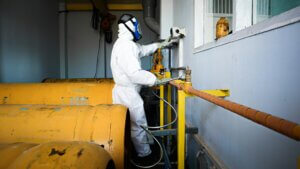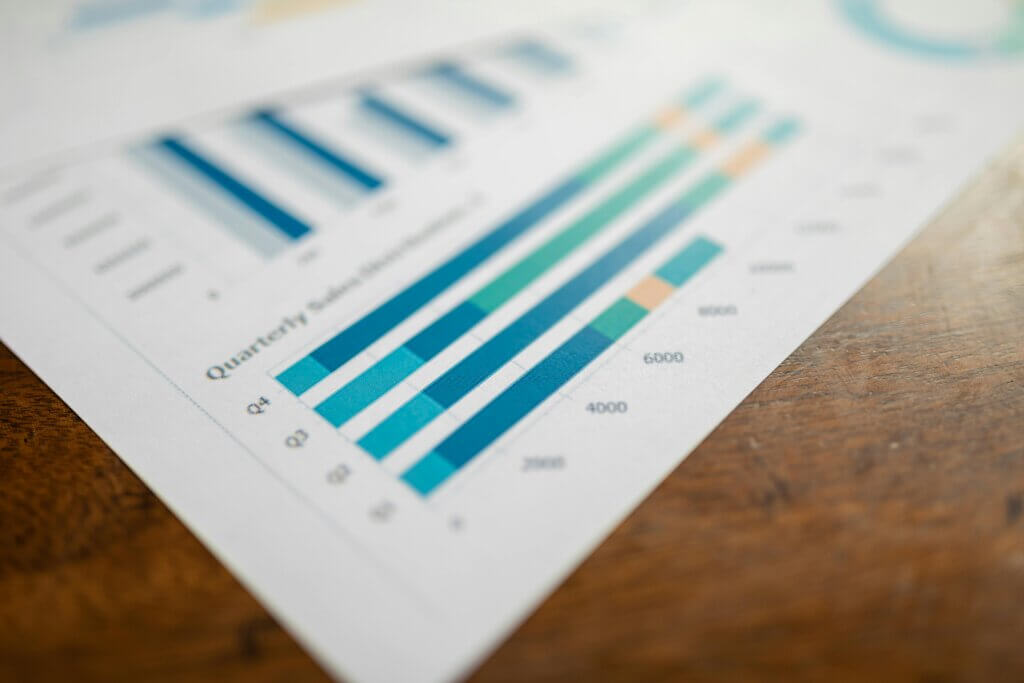WEROCK continues to grow – and with us, the greenhouse gas emissions resulting from production and logistics also increase. In this article, you will learn about the emissions generated in the fourth quarter of 2024, how we have dealt with them and what measures we are taking to reduce them.
But 2025 is not only a year of major changes for our company, but also for the world as a whole – economically, politically and ecologically.
Global and political upheaval
The new year began with a wake-up call: on January 20, 2025, Donald Trump took office for his second term as US President, immediately causing unrest in global markets. Profound political changes are also on the horizon in Germany. After the collapse of the coalition between the SPD, the Greens and the FDP in November 2024, early parliamentary elections were called for February 23, 2025. The new election could fundamentally change Germany’s political direction – with possible effects on the economy, environmental policy and international partnerships.
There is growing concern that sustainability will be pushed into the background as economic uncertainties and political power shifts could bring short-term interests to the fore.
Setbacks in climate policy
While economic uncertainties dominate the headlines, there are also setbacks in climate protection. Shortly after his swearing-in, the White House announced the US’s withdrawal from the Paris climate agreement. This could significantly impact the global fight against climate change, especially since the US is one of the world’s largest economies and CO₂ emitters.
EU Deforestation Regulation: Well-intentioned, but difficult to implement?
Another environmental policy initiative is the EU Deforestation Regulation (EUDR), which is expected to come into force at the end of 2025. Its aim is to ensure that timber and timber products traded in the EU have been legally harvested and have not contributed to deforestation or forest degradation. To this end, companies must establish a due diligence system and, among other things, record the exact geocoordinates of the forests concerned.
However, the regulation not only affects timber, but also agricultural products such as beef, soy, palm oil, cocoa, coffee and rubber – some of the main drivers of global deforestation. The challenge lies in the practical implementation: many of these raw materials come from non-EU countries, which are now confronted with new requirements. Companies must ensure that their suppliers collect and provide the required data, which in many cases is likely to involve considerable additional work. Suppliers now only have to implement this for the EU, which is likely to lead to significant cost increases in some cases.
Greenhouse gas emissions
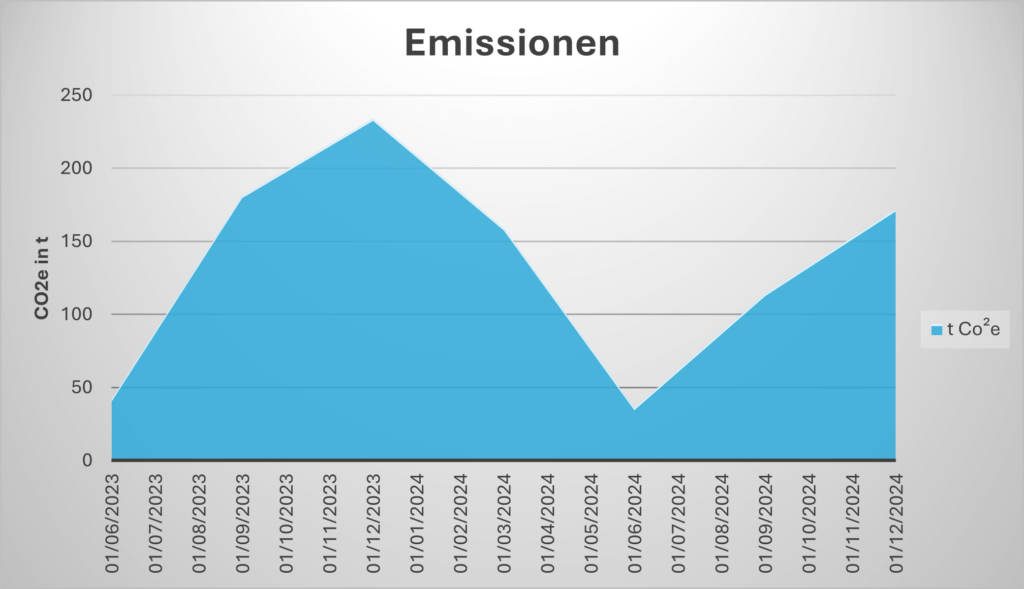
In Q4 2024, our emissions from manufacturing and logistics increased as expected. This is mainly due to further growth, higher demand and an expanded range.
The exact calculation of our emissions remains a challenge due to limited internal resources. Emissions are recorded according to the Scope 1-3 concept of the Greenhouse Gas Protocol. Overall, the majority of our emissions relate to Scope 3. This has increased from 97.96% in the third quarter to 98.11% in the fourth quarter of 2024. At the same time, the share of indirect emissions from purchased energy (Scope 2) and direct emissions (Scope 1) has also increased due to the larger team.
Climate neutral through offsetting
Unfortunately, computers cannot be manufactured in a climate-neutral way. However, part of our corporate philosophy is to offset unavoidable emissions in order to at least be climate neutral on balance. To do this, we invest in sustainable projects with high standards that meet at least five of the 17 United Nations Sustainable Development Goals. This quarterly climate report will keep you regularly informed about who receives these funds and how they are used.
We are currently supporting a wind power project in Rajasthan, India, initiated by Vish Wind Infrastructure LLP. The project has resulted in the installation of 37 wind turbines, each with a capacity of 800 kW and a total capacity of 29.6 MW. In addition to providing clean electricity, the project is helping to reduce the gap between energy supply and demand and promote sustainable growth. It covers several villages in the districts of Jaisalmer and Jodhpur in the state of Rajasthan.
The project meets the following United Nations sustainability goals:
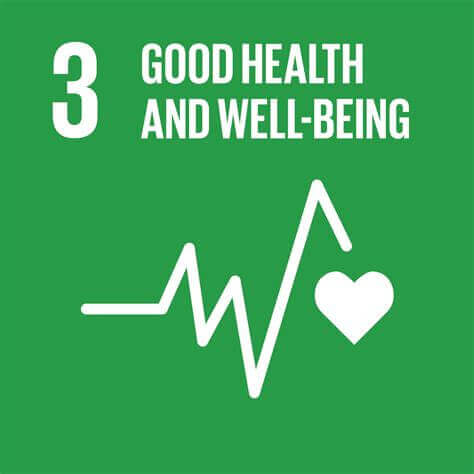
Goal 3 – Good Health and Well-Being
The project contributes to improving the quality of life by indirectly strengthening access to reliable and green energy for health facilities. In addition, infrastructure measures such as road construction are being implemented.
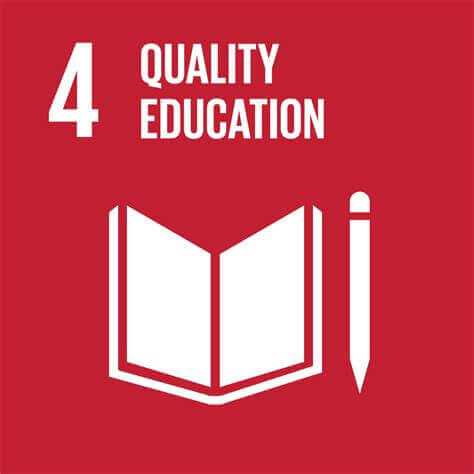
Goal 4 – Quality education
The project promotes education and social integration by creating new jobs and upskilling local professionals. It also creates new learning and development opportunities for the local population.
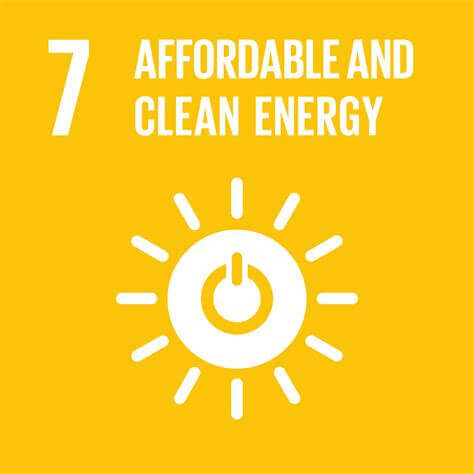
Goal 7 – Affordable and clean energy
The generation of wind energy makes a direct contribution to this goal by providing sustainable and emission-free electricity.
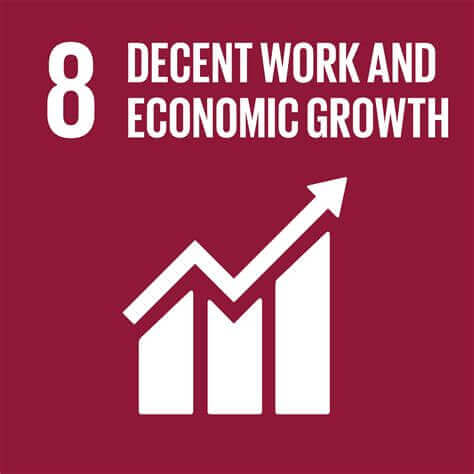
Goal 8 – Decent work and economic growth
The project creates jobs for skilled and unskilled workers, strengthens the local economy and contributes to sustainable economic growth.
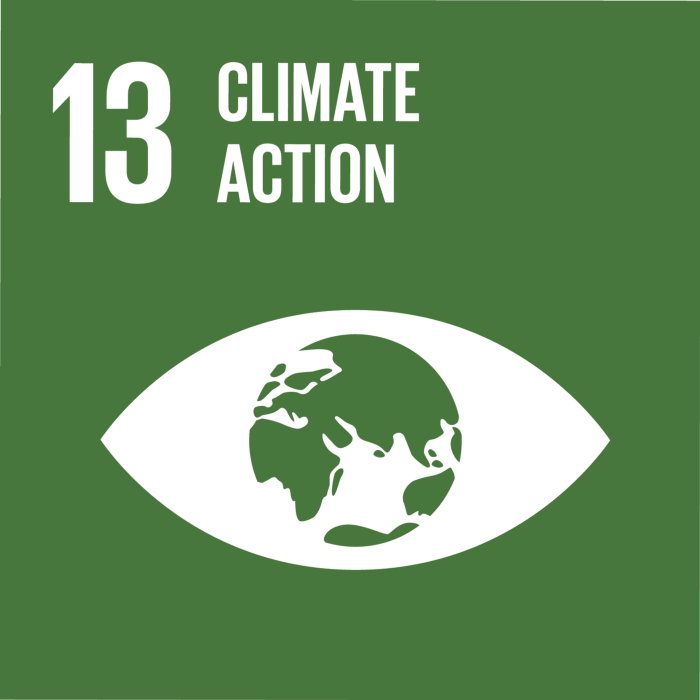
Goal 13 – Climate action
By significantly reducing greenhouse gas emissions compared to conventional power generation, the project actively supports climate protection. It also promotes the dissemination and commercialization of wind power technology.
All our compensation measures focus on goal 13 – climate protection. At the same time, sustainable climate protection in developing regions is inextricably linked to the strengthening of local infrastructure in order to ensure long-term positive effects.
Progress
The Android 14 update for our Rocktab S508 and Rocktab S510 tablet PCs improves battery life and the overall useful life of the product. This is not only good for our customers’ ROI, but also good for the climate.
Another success is our first donation to Labdoo, a non-profit, global platform that delivers unused laptops with powerful educational software to schools in need worldwide in a climate-neutral way.
Our new calculations now also include data from scope3transparent.de, which enables us to calculate our emissions even more precisely.
Setbacks
As part of the supplier climate audit, our partner factories met an average of 46.1% of the defined targets, which represents a slight improvement of 1.5% compared to 2022. Unfortunately, there are still difficulties in accurately recording CO2e emissions in the factories. Also, hardly any of the factories use green electricity. Furthermore, the ecological supply chain of the supply chain is often unclear and only meets the minimum legal requirements. However, it should be noted that the requirements for the factories have become stricter this year.
Another setback was the increased failure rate of NVMe SSDs in a single batch of 3.1%. This forced us to switch to a high-priced supplier and created unnecessary electronic waste.
As a small company, we are increasingly having to deal with more and more regulations. From additional labeling requirements, additional documentation requirements and additional seals. Companies that market products of any kind in the EU are well aware of the difficulties and headaches this causes. A new mandatory product data sheet certainly has its advantages, and the standardized repair index seal also has its raison d’être. Ultimately, however, all these regulations increase the pressure on small companies that “just want to sell”. The black sheep that they are supposed to affect are not affected. We have already seen service providers who issue fake certificates.
Outlook
For the coming quarter, we expect an increase in emissions due to our continued business growth. At the same time, however, we are making targeted investments in efficient processes and sustainable solutions to counteract long-term environmental impacts and fulfill our environmental responsibility. Our goal remains to combine growth with a positive contribution to climate protection.
